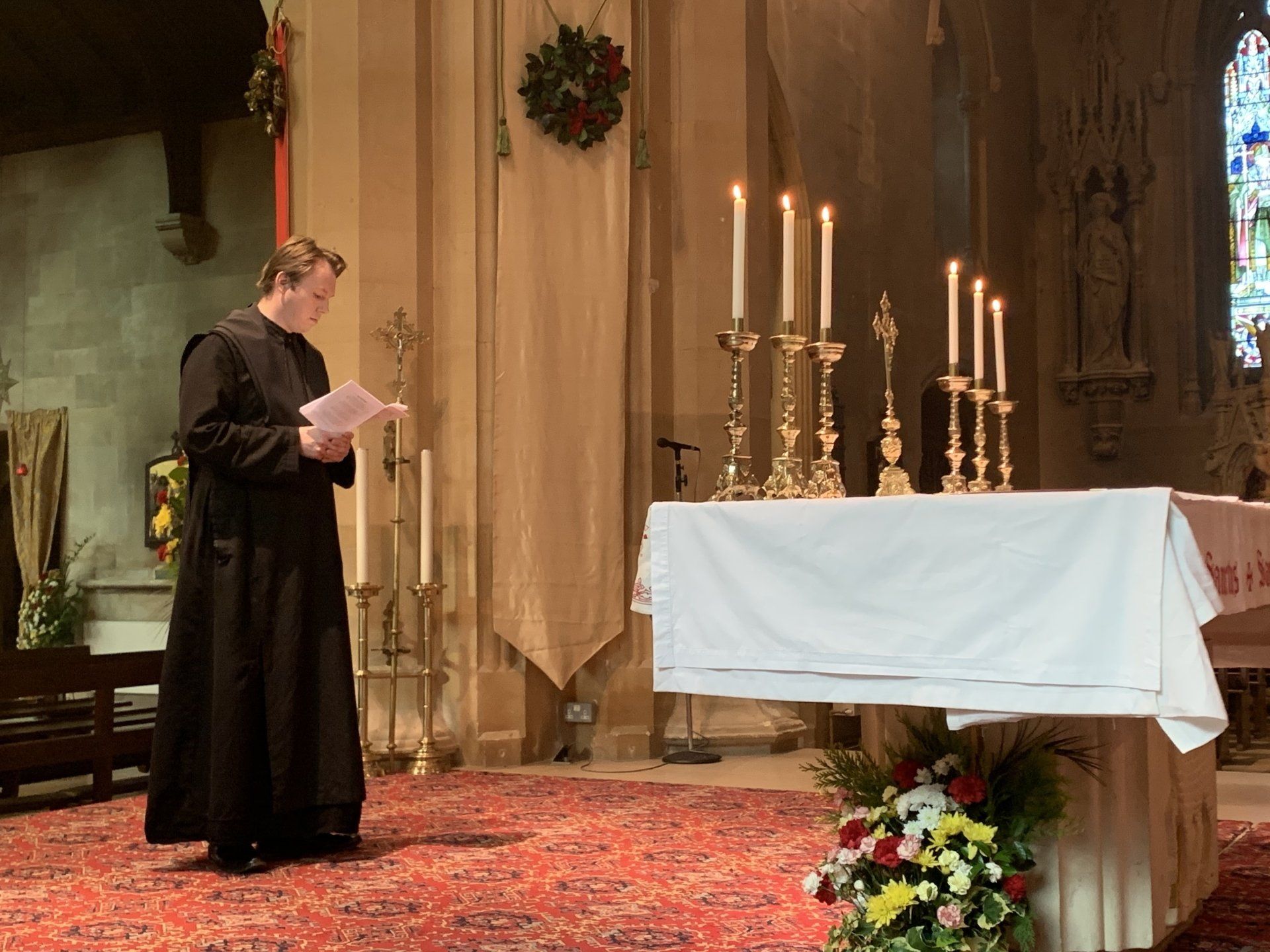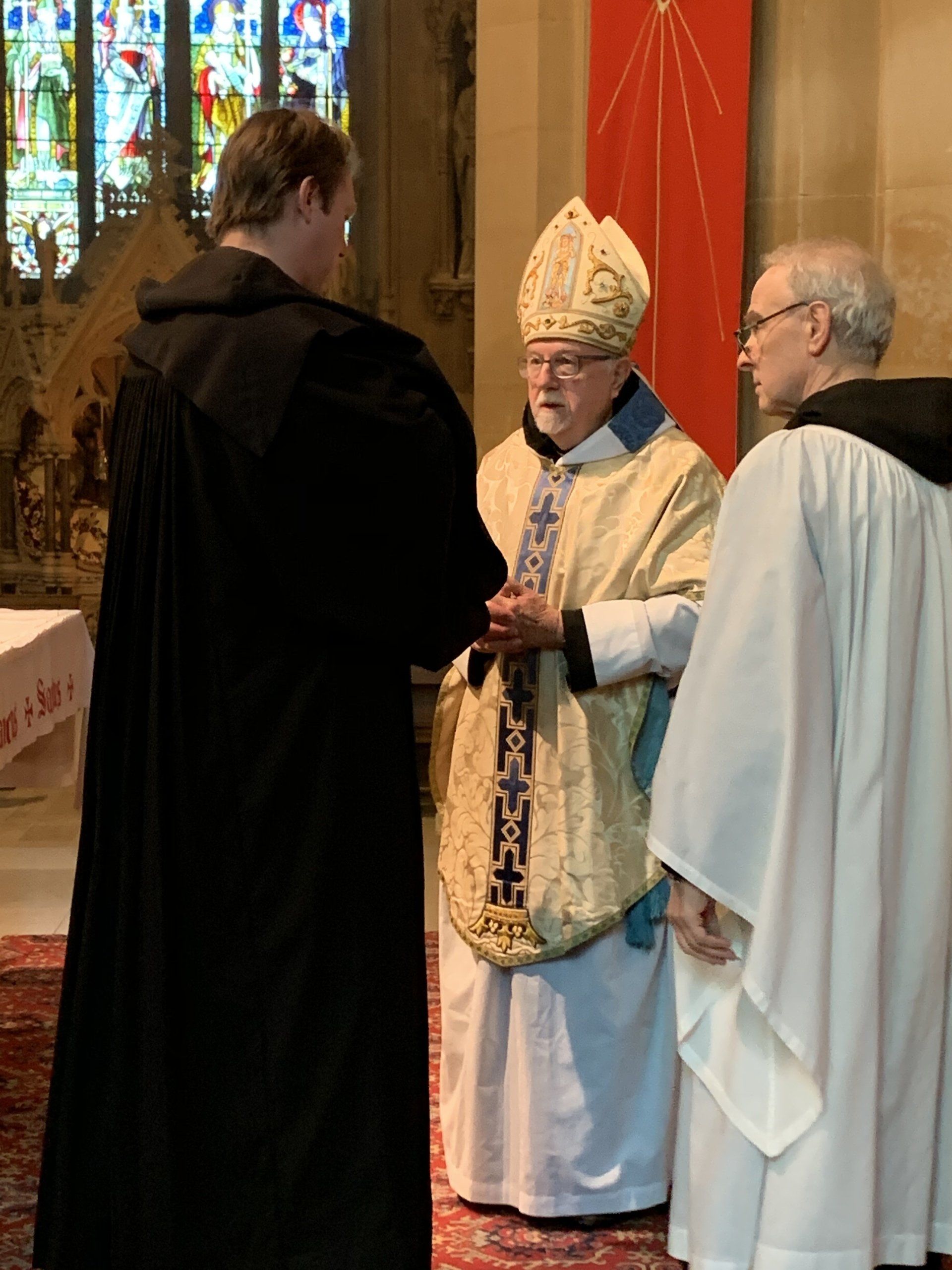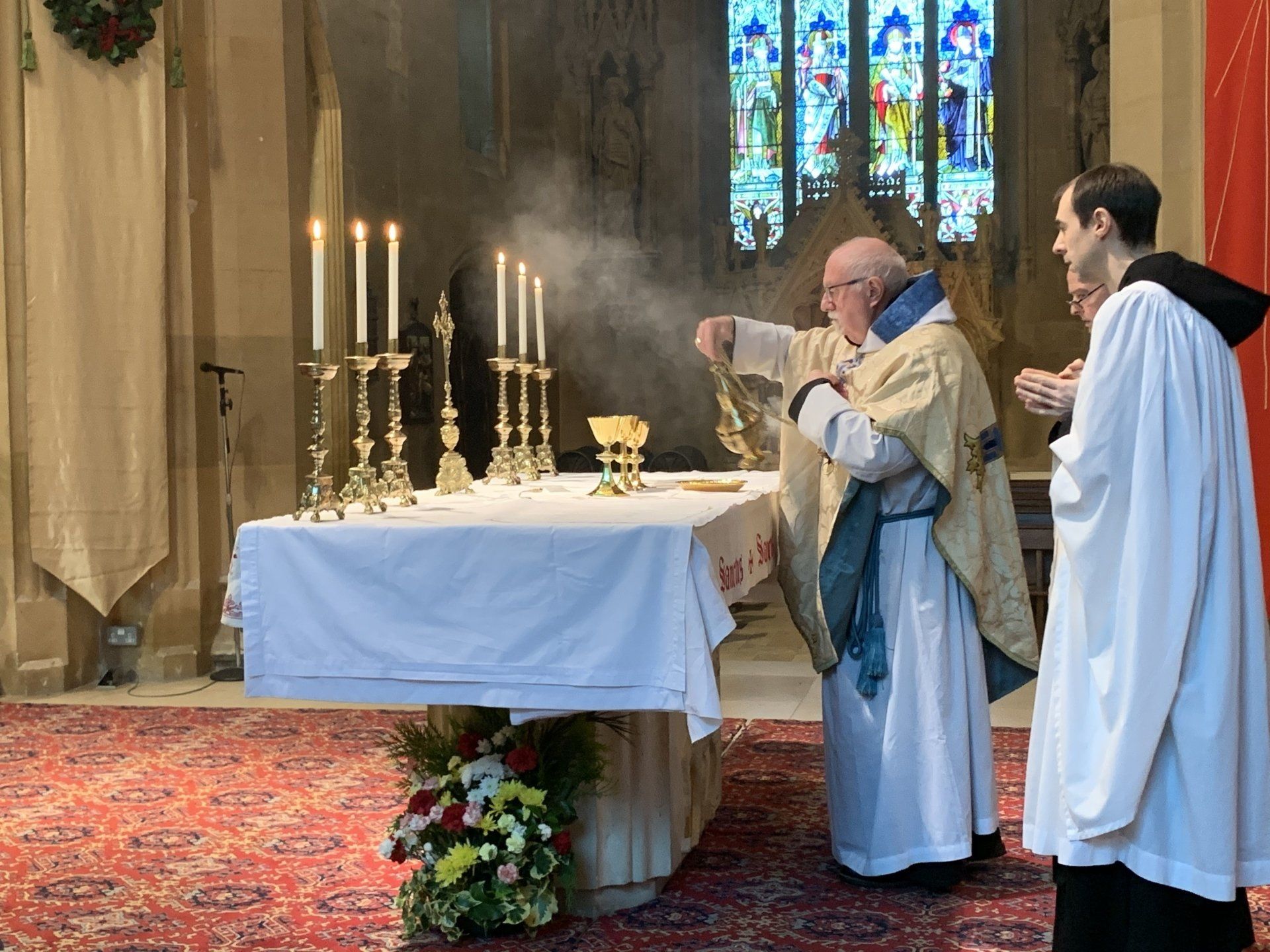Abbot Paul's Homily as Br Ambrose takes his temporary vows
Dear Br Ambrose, Epiphanytide is a wonderful season in which to make your monastic profession. The prophetic gifts of the Magi reveal in a graphic way the full meaning of the Incarnation: gold for a King, incense for a God and myrrh for the dead Body of the Saviour. This is the faith you professed at your reception into the Church, the faith you confirm today by pronouncing your vows. You believe that Jesus Christ is true God and true man and that God is a Trinity, Father, Son and Holy Spirit. Just as the Magi were guided by a star to worship the Child Jesus in the manger, so you have been guided by the light of faith to seek God and offer him your most precious gift, your life and very self. In this Birth, Death and Resurrection, Jesus gave his life for you. As a response to that most generous act of love and surrender, you now consecrate yourself to him for three years in the monastic life.
In the Gospel passage we have just heard, Jesus sends the crowds away and goes off into the hills to pray. The gospels tell us frequently that Jesus would seek the solitude of desert or mountain in order to be alone in prayer with his Heavenly Father. It was in his life of prayer, above all, that Jesus revealed to his disciples his true identity as incarnate Son of God, more so even that walking on the water. In the monastic life he invites you to journey with him into the mystery of God, into the very heart of God. Now this journey into God also involves a journey into yourself, into the very depths of your being. Some people leave the monastic life and abandon the search for God because they cannot face that journey, which can be painful and frightening. Knowing God is intrinsically bound up with knowing yourself. Nor can we love God unless we love him as we love our neighbour and ourselves. “It is not I who live but Christ who lives in me,” wrote St Paul. In Christ alone do we discover our true selves. In the search for God we discover who we really are. Seeing ourselves in God, we come to that perfect love which casts out fear.
Contemplation is not simply a way of prayer; it is life itself. “I am the Way and the Truth and the Life. To have seen me is to have seen the Father,” says Jesus. The goal and purpose of our monastic life and observance is contemplation: to see God and to know him, to love and serve him, to worship and adore him. We come to see him in our brethren, in the abbot, in the sick, in the young and the old, in our guests and in the poor. We find him in the furnace of human suffering.
In the First Letter of St John, we read that God loves us so much that we must respond by loving each other as he loves us. We cannot be Christians if there is anything but love in our hearts, love for God and love for our neighbour and, more specifically in the monastery, love for our brethren. St Benedict sees love as the goal of monastic life. Having climbed the ladder of humility, it is at the very top that we find that perfect love which casts out all fear. St John writes, “In love there can be no fear, but fear is driven out by perfect love.” The only proof you have that you love God is that you love your brethren, not just a few of them, the ones you like or get on with, but each one of us without exception. You can only learn to love by climbing the ladder of humility. It will be a struggle: love doesn’t come easy.
St Benedict uses many images for a monastery in his “little rule for beginners”. It is a School for the Lord’s Service, the word school being used both in the sense of a place of learning and in the sense of a team of players or singers. Using the powerful arms of obedience we are like soldiers setting out for war and battling against the forces of evil: the monastery is like an army. In that the Abbot is called to be the shepherd of his flock, the monastery is like a farm. St Benedict tells him that he has been given the care of weak and sickly men, of men who are sinners like himself, so a monastery is also like a hospital where the infirm are healed. He is also given Christ’s name, Abba, and holds the place of Christ in the Community, so the monastic community is a brotherhood. In this we reflect the early Church in Jerusalem and the first Christian community. The key word in the Rule is coenobitic. We are that strong kind of monk, coenobites, who live under a Rule and an Abbot and who follow the Gospel as guide. We are not a group of individuals living under the same roof, but a community of brothers.
A monastery, then, is an image, an icon, of the Church, in the words of the Second Vatican Council, a domestic Church. As monks we are aware that it is Christ who has called us to the monastic life, to be monks of Belmont and only Christ can make us what he truly wants us to be. So, Br Ambrose, we pray that, in the depths of your heart, you will always be open to the saving work of Christ, the true Opus Dei. We pray that you will always allow the Holy Spirit to form and transform you and that you, together with your brethren, will one day come rejoicing to our heavenly home, whither we run together, placing our hope and trust in God.
We pray for your parents and family. May they come to appreciate your vocation and may you support them always with your prayers. Amen

















